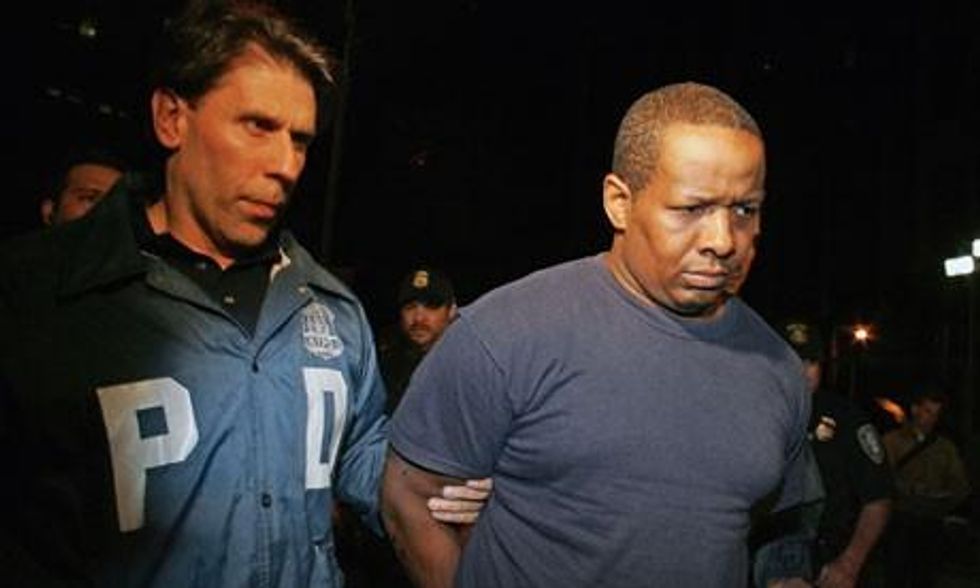On Wednesday, a much-publicised FBI terrorism sting concluded when three of four men from Newburgh, New York were sentenced to 25 years in prison (a fourth will be sentenced next Tuesday). The four men had, along with an FBI informant who led the plot, planted a bomb at a Jewish community centre just outside New York City and procured a Stinger missile with which to attack the army's Stewart air base.
At first glance, it was the perfect homegrown terrorism trial. All the crucial ingredients were there: a group of suspects allegedly linked to a foreign terrorist organisation; the placement of explosives; and targets that were bound to arouse fear in discreet communities. The only problem, as Judge Colleen McMahon pointed out at sentencing, was that this was not really a typical terrorism case but "sui generis ... unique and troubling".
The reason, the judge explained, was that "there would never have been any case if the government had not made one up." But this was only part of the troubling story.
The real problem began not with the suspects, but with the government's confidential informant. Shahed Hussain, a 53-year-old Pakistani citizen who has reportedly lived in the United States for several years, served as the point person in a sting operation in which, as the judge explained, "no one except the government instigated, planned and brought [the plot] to fruition."
Throughout the sentencing, Judge McMahon remained firm: this case was a government invention. The men in question did not agree to carry out the crime due to ideology. They had no allegiance to, or even knowledge, of the terrorist group Jaish-i-Mohammed, in whose name they allegedly acted. They were not motivated to criminal behaviour by their allegiance to Allah. They were motivated, purely and simply, by money; as such, they were criminals deserving punishment, but not terrorists. As Judge McMahon repeatedly stated, these men were not equivalent to the 2010 Times Square bomber, Faisal Shazad, or other ideologically motivated terrorists.
Still, McMahon could find no valid legal precedent for overturning the jury conviction of the defendants on trial for terrorism-related charges. She sentenced all three men to the mandatory minimum of 25 years, rejecting the prosecution's request for life sentences. But the question remains: why did she uphold even the mandatory minimums when she repeatedly said that the government had dreamed up the whole case? Why did she decide this way when she expressed her disappointment repeatedly with the government's conduct in the case? Was it because, as the lead prosecutor David Raskin declared, "The fact that it was all fake really doesn't matter." Was it because the defendants placed what they thought to be a live bomb outside a Jewish community centre in Riverdale, and were thus willing to kill many innocent people?
The rationale for McMahon's harsh sentence was the most pronounced and least discussed element of this sting: the blatant antisemitism at the heart of it. In dozens of hours of taped conversation, Cromitie had expounded in graphic terms about his hatred for Jews and his desire to get back at those who he felt were biased against his Muslim practices.
On Thursday, as during the trial, Judge McMahon reminded the court just how appalling were those expressions of loathing. She excoriated Cromitie for his vile views, exhibiting to her mind "a hatred that is particularly horrifying to members of my generation whose fathers and grandfathers and friends and neighbours helped liberate the concentration camps from the Nazis". She quoted from one of the more unpleasant passages of the trial itself, denouncing the sentiment that "all the evil in the world is due to the Jews".
But Cromitie wasn't the only person in the case to utter antisemitic remarks. The informant Shahed Hussain was caught on tape urging Cromitie to think about acting "for the cause" - by attacking a synagogue - rather than merely by lashing out at a few individual Jews. Towards that end, Hussain even schooled Cromitie about the Mumbai attack and the targeting of many Jews in one place. In fact, it was Hussain who had referred to the Jews as "the root of all evil" - to which Cromitie initially responded, "I don't want to go that far."
This case has found headlines on the issue of entrapment. But its true significance lies in a much more disturbing fact. Who, if asked, would want a government agent to spread antisemitism as a means of inciting terrorism - particularly with a defendant who was characterised by his own attorney as the "biggest mouth" in town? Who really thinks that tax dollars are well spent to support utterances of antisemitism as a means of bonding with potential criminals and turning them into attempted terrorists?
At one point, Judge McMahon acknowledged ruefully that the defence wanted her to take the "bold step" of reducing the mandatory minimums as a slap to the government's overzealousness. But the truly "bold step" would have been to follow her heart and push back on the grounds that advocacy of antisemitism is just as wrong for the government as it is for the defendants themselves.
* Research for this piece was contributed by Susan Quatrone and Camilla MacFarland




